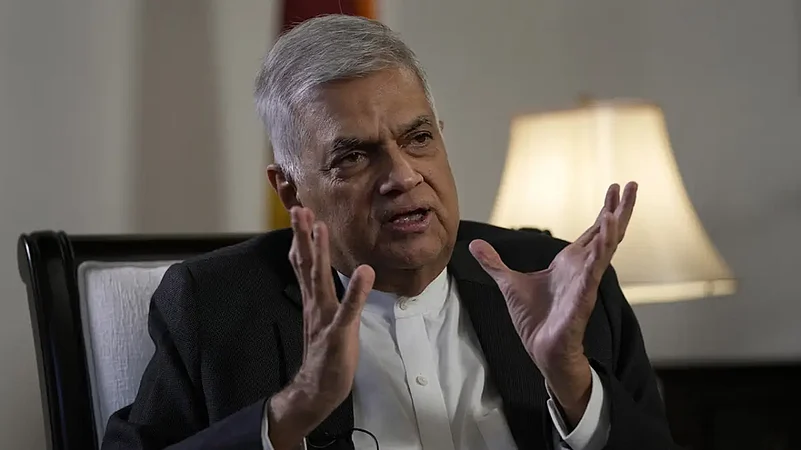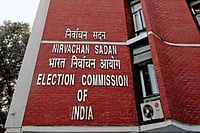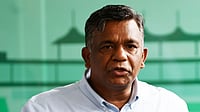Sri Lanka's main opposition party Samagi Jana Balavegaya (SJB) on Monday said it is ready to lead the next government to bring stability to the bankrupt island nation as it grapples with political and economic crises and any resistance to the move in Parliament will be seen as a "treacherous act".
The statement by SJB leader Sajith Premadasa came after the announcement made by Prime Minister Ranil Wickremesinghe’s office that the entire Sri Lankan Cabinet will resign and hand over their responsibilities to a new all-party interim government as soon as it is formed.
President Gotabaya Rajapaksa announced on Saturday that he will resign on Wednesday. Prime Minister Wickremesinghe also said that he will step down after a new government is formed.
Opposition parties on Sunday held talks and decided to form an all-party interim government after Rajapaksa and Wickremesinghe agreed to resign.
In a video statement released on SJB’s social media channels, Premadasa said his party is ready to lead the country at the presidential and prime ministerial level and develop the economy, the Economy Next news portal reported.
“We will appoint a government headed by a president and a prime minister. There is no other alternative. If anyone opposes this or tries to sabotage it in Parliament we will see it as a treacherous act,” he said.
“We’re ready to protect the motherland, to give leadership to the motherland, to build the economy,” he said. In his statement, Premadasa also recognised the people’s protests which led to the ouster of President Rajapaksa. “Victory to the motherland, victory to the people, victory to the aragalaya (struggle),” he said.
President Rajapaksa is yet to resign formally. According to the prime minister’s office, Rajapaksa has officially communicated to Wickremesinghe that he will resign on Wednesday as previously announced. However, a statement from the president’s office later said that only the Speaker of Parliament can release statements from the president.
Under the Sri Lankan Constitution, if both the president and prime minister resign, the Speaker of parliament will serve as acting president for a maximum of 30 days.
The Parliament will elect a new president within 30 days from one of its members, who will hold the office for the remaining two years of the current term.
The cash-starved island nation witnessed a tumultuous day on Saturday when protesters broke into Rajapaksa's official residence in Colombo. The protesters were seen in the bedrooms and splashing around in the swimming pool of the President's House.
About 100,000 protesters amassed outside of the president's official residence on Saturday, demanding Rajapaksa's resignation. Video broadcast on Sri Lankan television and on social media showed protesters entering the President's House - Rajapaksa's office and residence in the commercial capital of Colombo - after breaking through security cordons placed by police.
Protesters did not spare Prime Minister Wickremesinghe despite his offer to resign and set on fire his private residence in an affluent neighbourhood in the capital.
Sri Lanka, a country of 22 million people, is under the grip of an unprecedented economic turmoil, the worst in seven decades, leaving millions struggling to buy food, medicine, fuel and other essentials.
The country, with an acute foreign currency crisis that resulted in foreign debt default, had announced in April that it is suspending nearly USD 7 billion foreign debt repayment due for this year out of about USD 25 billion due through 2026. Sri Lanka's total foreign debt stands at USD 51 billion.
Last week, the prime minister said Sri Lanka's ongoing bailout talks with thecdepended on finalising a debt restructuring plan with creditors by August.


























